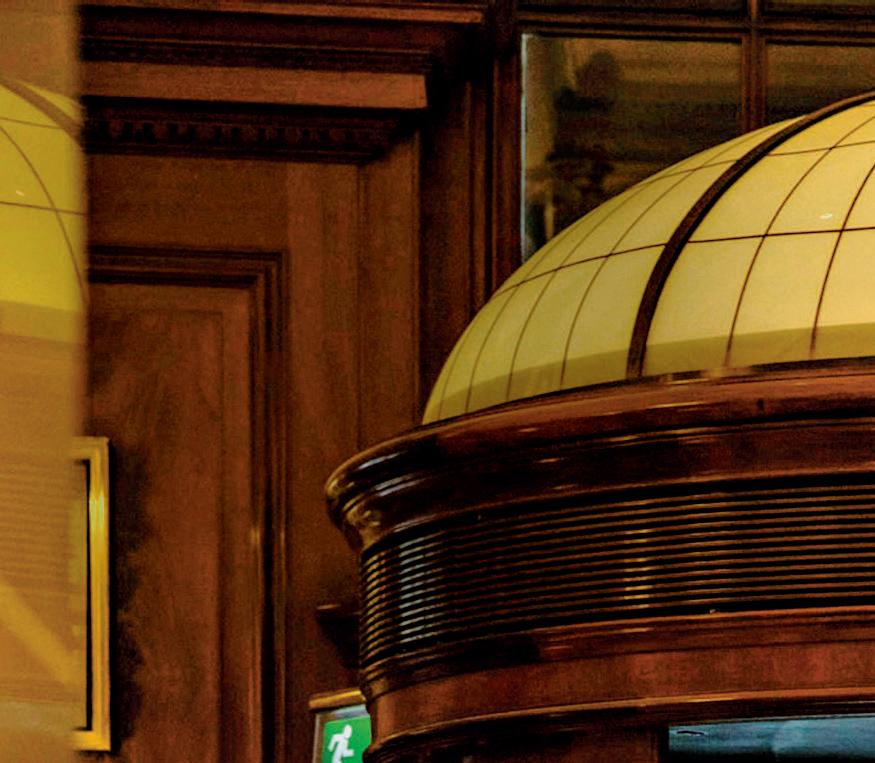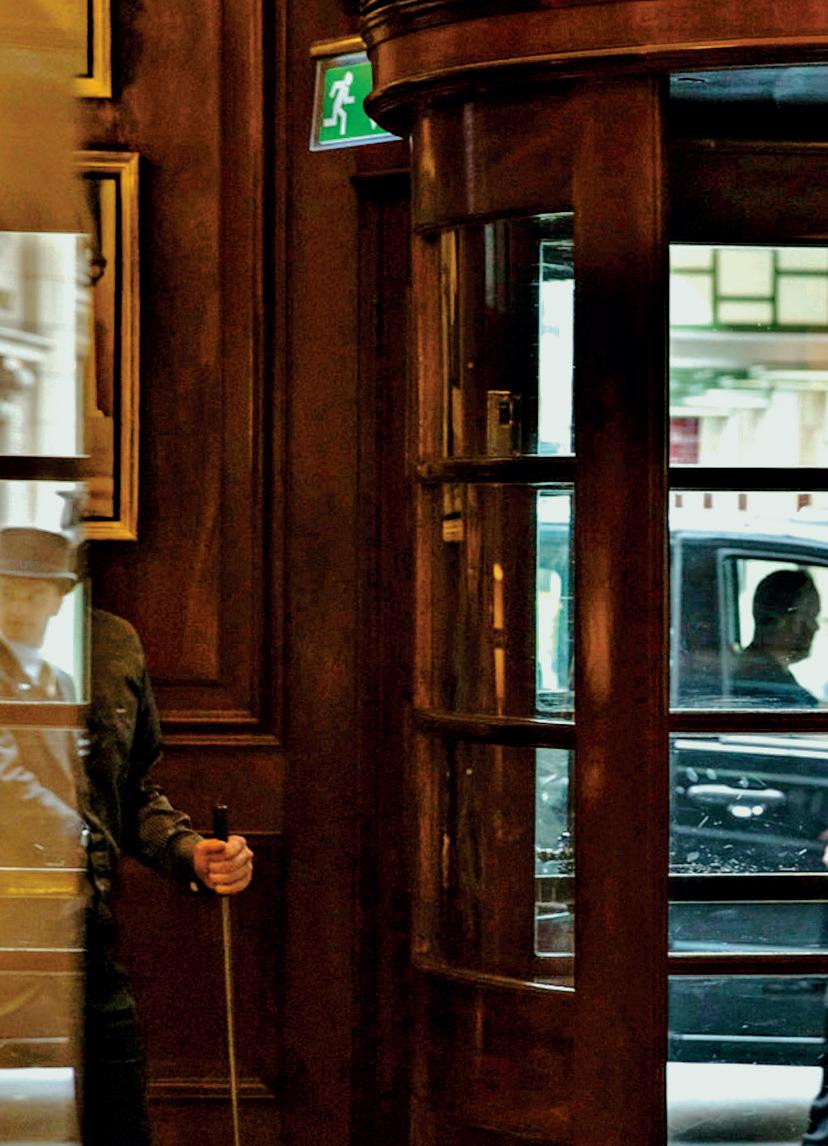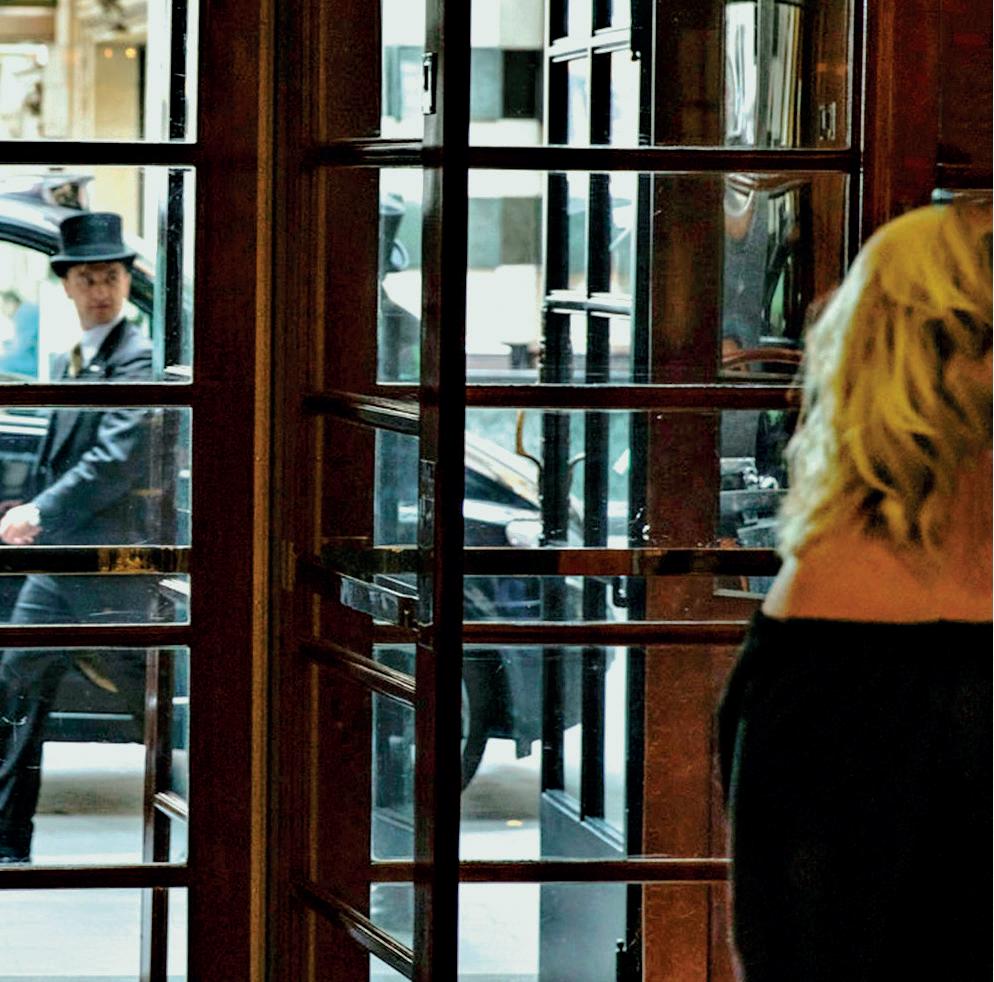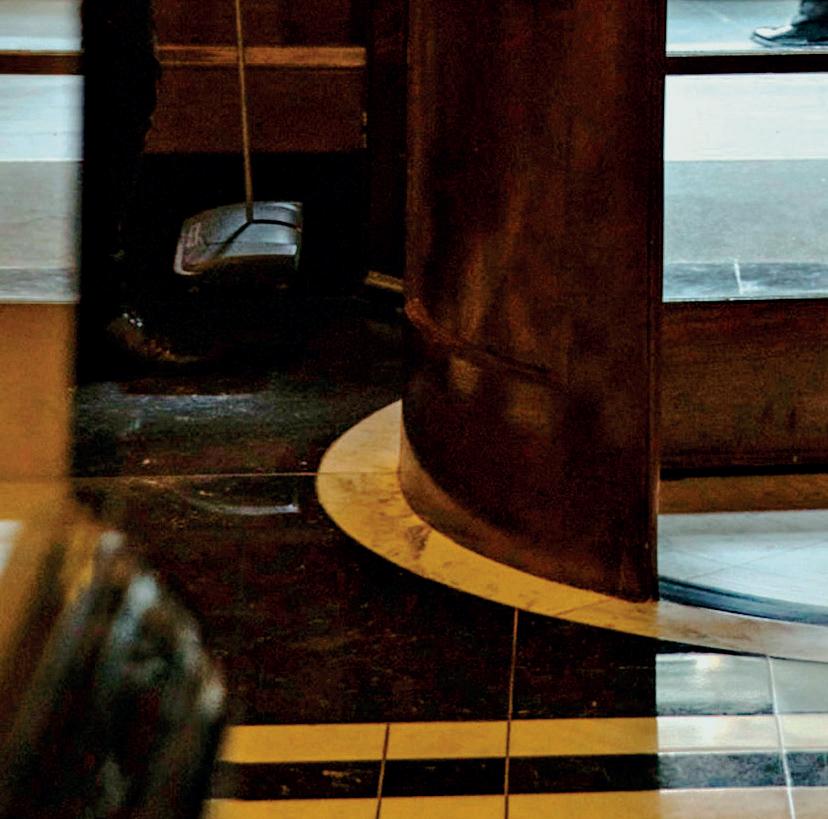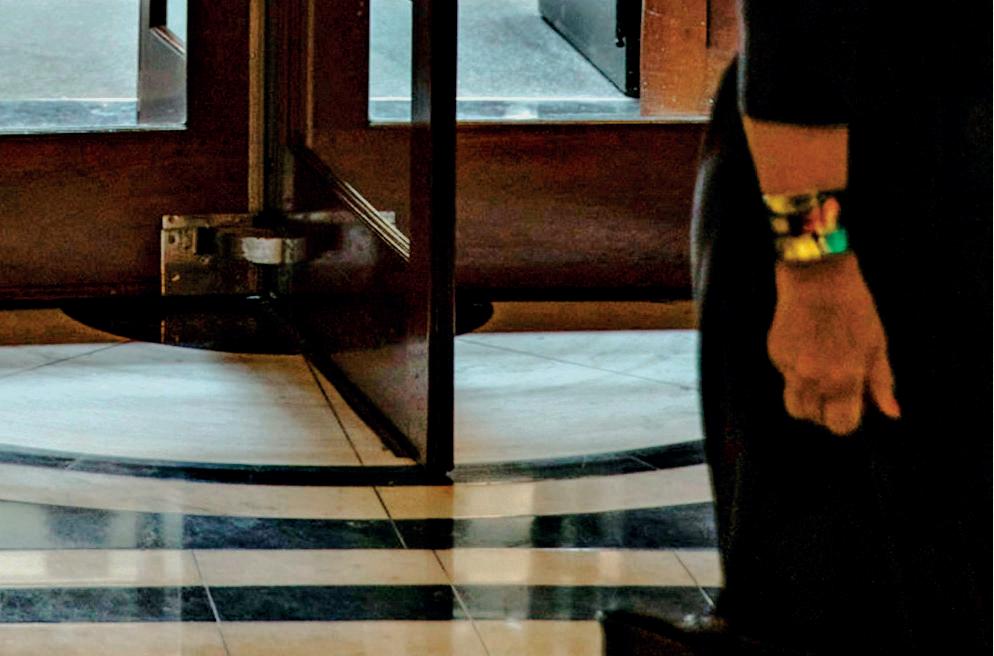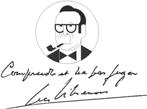Maigret’s Revolver
In which Maigret arrives late for lunch and a guest fails to turn up for dinner
When, in later years, Maigret looked back on this particular investigation, it would always strike him as something a little out of the ordinary, associated in his mind with the kind of illness that does not declare itself clearly but begins with vague twinges, feelings of unease, symptoms too mild to take seriously.
The first sign had been neither a complaint to the Police Judiciaire, nor an emergency appeal for help or anonymous tip-off, but instead, to go back to the very beginning, an innocuous phone call from Madame Maigret.
The black marble clock on the office mantelpiece was showing twenty to twelve; he could clearly recall the angle of the hands on its face. The window was wide open, since it was a June day, and under the warm sunshine Paris was already smelling of summer.
‘Is that you?’
His wife had of course recognized his voice. But she always asked if it was him on the other end, not out of distrust but because she had always been awkward on the phone. In Boulevard Richard-Lenoir too, the windows would be wide open, and by now Madame Maigret would
have finished most of her household tasks. It was unusual for her to telephone.
‘Yes, it’s me.’
‘I wanted to ask if you would be home for lunch.’
It was even more unusual for her to call with such a question. He frowned, not from irritation but in surprise.
‘Why?’
‘Oh, nothing. Or rather, there’s someone here to see you.’
He could sense she was feeling embarrassed, almost at fault.
‘Who?’
‘Nobody you know. It’s nothing. Just that if you won’t be home for lunch, I’ll tell him not to wait.’
‘A man, then?’
‘A young man.’
She had no doubt taken the visitor into the front room, which they hardly ever used. The telephone was in the dining room, where they usually sat and where they received guests they knew well. It was where Maigret kept his pipes and had his armchair, and Madame Maigret her sewing machine. From the awkward way she was talking, he understood that she had not dared close the door between the two rooms.
‘Who is he?’
‘I don’t know!’
‘What does he want?’
‘I don’t know that either. He says it’s personal.’
He didn’t attach much importance to the call. If he was asking questions, it was only because of his wife’s
hesitation, and also because it seemed to him that she had already taken the visitor under her wing.
‘I should be leaving the office at about twelve,’ he said in the end.
There was only one more person to see, a woman who had already come three or four times to complain about threatening letters from her neighbour. He pressed the buzzer for the office boy.
‘Show her in.’
He lit a pipe and leaned back in his chair, with an air of resignation.
‘So, madame, you have received another letter?’
‘Two, inspector. I’ve brought them along. In one of them, you’ll see, she admits she was the person who poisoned my cat, and she says that if I don’t move out I’ll be next.’
The hands moved slowly round the clock face. He had to pretend to be taking this matter seriously. It lasted a little under a quarter of an hour. Then, just as he was getting up to fetch his hat from the cupboard, there was a knock at the door.
‘Are you busy?’
‘Hello! What are you doing in Paris?’
Lourtie, one of his former inspectors, had recently transferred to the Flying Squad in Nice.
‘Just passing through. I thought I might drop in, sniff the air of headquarters and shake hands with you. Do we have time for a pastis in the Brasserie Dauphine?’
‘Yes, but it’ll have to be a quick one.’
He liked Lourtie, a tall lanky fellow with the voice of a church cantor. In the brasserie, where they stood at the
counter, there were already several other inspectors. They chatted about this and that. A pastis was exactly what was needed on a day like today. They had one, then another, then a third.
‘I’ve got to go, I’m expected back home.’
‘I’ll walk along with you, shall I?’
The two men had crossed the Pont Neuf together, then walked to Rue de Rivoli, where it took Maigret a good five minutes to find a taxi. It was ten to one by the time he had finally climbed the three floors to the apartment on Boulevard Richard-Lenoir and, as usual, the door opened before he had a chance to take the key out of his pocket.
He had immediately noticed that his wife was looking preoccupied. Speaking in a low voice, since the doors were open, he asked her:
‘Is he still here?’
‘No, he’s gone.’
‘And you don’t know what he wanted?’
‘He didn’t say.’
Had it not been for Madame Maigret’s anxious expression, he would have shrugged his shoulders and muttered:
‘Good riddance!’
But instead of going back into the kitchen and serving the lunch, she followed him into the dining room, looking like someone who has a confession to make.
‘Did you go into the front room this morning?’ she asked him eventually.
‘Me? No. Why?’
Why indeed would he have gone in there before setting off for the office, since he detested the room?
‘I thought not.’
‘So, what’s the matter?’
‘Nothing. I’m trying to remember. I looked in the drawer.’
‘Which drawer?’
‘The one you keep your American revolver in.’
It was only now that he began to suspect the truth. He had spent several weeks in the United States, as a guest of the FBI, and the question of firearms had come up a great deal while he was there. When he left, the Americans had presented him with an automatic of which they were very proud, a Smith & Wesson .45 special, with a short barrel and a very sensitive trigger. It was engraved with his name:
To J.-J. Maigret from his FBI friends.
He had never used it. But the day before, it just so happened that he had taken it out of the drawer to show someone, a former schoolfriend whom he had invited round for a drink after dinner. And he had taken the visitor into the front room.
‘Why does it say “J.-J. Maigret”?’ the guest had asked. He too had asked that question when he had been given the gun, during a cocktail party in his honour. The Americans, who usually have two first names, had found out his own. Only the first two, fortunately: Jules-Joseph. In fact, he had a third name: Anthelme.
‘Do you mean my revolver isn’t there now?’
‘I’ll explain.’
Before letting her speak, he went into the front room, which still smelled of cigarette smoke, and glanced at the mantelpiece, where he remembered having placed the gun the night before. It wasn’t there. But he was sure he hadn’t put it away.
‘What’s all this about?’
‘Sit down first, and let me serve the food, or the roast will be overdone. Please don’t be cross.’
He was already cross.
‘I do think it’s going a bit far, to let a stranger in and—’
She left the room and returned with the dish for their midday meal.
‘If you’d seen him—’
‘How old?’
‘Very young. Nineteen? Twenty perhaps?’
‘And what did he want?’
‘He rang the bell. I was in the kitchen and I thought it was the gas man. I opened the door. He asked if this was the right address for Chief Inspector Maigret. I gathered from the way he behaved that he thought I was the maid. He looked nervous, scared almost.’
‘And you showed him into the front room.’
‘Because he said he absolutely needed to see you to ask your advice. I told him he should go to your office. But apparently it was too personal.’
Maigret still looked irritated, but began to feel like smiling. He could imagine the young man, in a state of panic, and Madame Maigret immediately taking pity on him.
‘What was he like?’
‘A very nice boy. I don’t quite know what to say. Not rich, but well brought up. I’m sure he had been crying. He took out a packet of cigarettes, then apologized at once. So I said:
‘“It’s all right, I’m used to it, you can smoke if you like.”
‘Then I promised to phone you, to check whether you would be coming home.’
‘And the revolver was still on the mantelpiece?’
‘Yes, I’m sure it was. I didn’t notice it just then, but I remember it was there when I was dusting at about nine o’clock, and nobody else has been in here.’
If she had not put the revolver back in its drawer, it was, he knew, because she had never been able to get used to firearms. Even if she had been assured it wasn’t loaded, she would not have touched it for anything in the world.
He could imagine the scene. His wife going into the dining room and talking to him in a low voice on the phone, then returning to say:
‘He’ll be back in half an hour at latest.’
Maigret asked:
‘Did you leave him on his own in here?’
‘Well yes, I had the lunch to see to.’
‘When did he leave?’
‘That’s just it, I don’t know. There was a moment when I was frying the onions and I closed the kitchen door, for the smell not to spread. Then I went into the bedroom to freshen up. I thought he was still there. Perhaps he was. I didn’t want to embarrass him by going into the front room again. It was only a little after half past twelve when I thought I’d go and tell him to be patient, and then I realized he wasn’t there. Are you angry with me?’
Angry with her for what?
‘What do you think this is about? He really didn’t look like a thief.’
No, he couldn’t have been one, for heaven’s sake! How would a thief ever have guessed that that very morning there would be an automatic on the mantelpiece in the Maigrets’ front room?
‘You look anxious. Was the gun loaded?’ ‘No.’
‘Well, then?’
Not worth replying. Someone who takes the trouble to get hold of a revolver intends sooner or later to use it. Maigret wiped his lips, stood up and went to look in the drawer, where he found the cartridges in their place. Before sitting down again, he telephoned the office.
‘Torrence, is that you? Can you call up all the gunsmiths in the city? Hello? . . . Yes, I said gunsmiths. Ask whether anyone has come in wanting to buy cartridges for a Smith & Wesson .45 special . . . What? . . . Yes, a .45 special. In case nobody has turned up yet, tell them that if someone does come in this afternoon or tomorrow, they should keep them waiting somehow or other, and contact the nearest police station . . . Yes. That’s all. I’ll be in the office as usual.’
When he arrived back at Quai des Orfèvres at about half past two, Torrence already had the answer. A young man had walked into a gunsmith’s on Boulevard BonneNouvelle, but they didn’t have the calibre he asked for and had sent him on to the well-known firm of GastinneRenette. And there, they had sold him a boxful.
‘Did the boy show the gun to anyone?’
‘No, he just gave them a piece of paper with the make and calibre written on it.’
Maigret had various matters to see to that afternoon. At about five o’clock, he went upstairs to the laboratory. Jussieu, the director, asked him:
‘Are you going to Pardon’s this evening?’
‘It’s brandade of cod!’ Maigret replied. ‘Pardon phoned me the day before yesterday.’
‘Me too. But I don’t think Doctor Paul will be able to come.’
In the life of married couples, there are times when you see a great deal of another couple, then lose touch for no reason.
For about a year now, once a month, the Maigrets had been regularly visiting the Pardons, for what they called ‘the doctors’ dinner’. It was this same Jussieu, the director of the forensic service, who had first taken Maigret to Doctor Pardon’s apartment on Boulevard Voltaire.
‘You’ll see! You’ll like him. He’s a very competent chap, who could have become a leading consultant. In any field, I could almost say, since after being a houseman at the Val-de-Grâce and assistant to Lebraz, he was at the SainteAnne Institute for five years.’
‘And now?’
‘He’s in general practice by choice; he works twelve to fifteen hours a day without caring whether the patients can afford to pay him, and he often forgets to send them his bill. Apart from that, his only passion is cooking.’
Two days later, Jussieu had telephoned.
‘Do you like cassoulet?’
‘Why?’
‘Pardon has invited us for tomorrow. When you dine at his house, you just have one main dish, usually some regional speciality, and he likes to know in advance whether his guests will like it.’
‘Cassoulet will do very well.’
Since then there had been more dinners: coq au vin, couscous, sole Dieppoise, and other dishes.
This time it was brandade of cod. Now who was it that Maigret was going to meet tonight, he tried to recall? Pardon had telephoned him two days before.
‘Will you be free the day after tomorrow? Do you like fish? Are you for or against truffles?’
‘For.’
They had got into the habit of addressing each other as ‘Maigret’ and ‘Pardon’, although their wives were on firstname terms. The two couples were near enough in age. Jussieu was ten years younger and Doctor Paul, the pathologist who often joined them, older.
‘Tell me, Maigret, you wouldn’t mind meeting one of my old schoolfriends, would you?’
‘Why should I mind?’
‘I don’t know. To tell you the truth, I wouldn’t have invited him, except that he asked me to find a way of introducing him to you. He came to see me at the practice just now, because he’s also one of my patients, and he was very insistent to know whether you would definitely be there.’
At half past seven that evening, Madame Maigret, who had changed into a flowered dress and a fetching straw hat, was putting on her white cotton gloves.
‘Are you coming?’
‘I’m right behind you.’
‘Are you still worrying about that young man?’
‘No, not at all.’
One of the agreeable things about these dinners was that the Pardons lived only five minutes’ walk away. The sun was reflecting off the upper windows. The streets smelled warm and dusty. Children were still playing out of doors and families had brought chairs on to the pavement to take the air.
‘Don’t walk so fast.’
He always walked too quickly for her.
‘Are you sure that was him buying the cartridges?’
Since that morning, and especially after he had told her about the visit to Gastinne-Renette, there had been a weight on her mind.
‘You don’t think he means to kill himself, do you?’
‘Let’s change the subject, shall we?’
‘It’s just that he was so nervous! His cigarette ends in the ashtray were in shreds.’
The air felt mild and Maigret held his hat in his hand as he walked, as if out on a Sunday stroll. They reached Boulevard Voltaire and arrived at the building where the Pardons lived, near the square. They took the lift, which made its usual squeak on starting up, and Madame Maigret gave her usual little jump.
‘Come in. My husband will be back in a few minutes. He was called out urgently, but it’s just round the corner.’
It was rare for one of their dinners to take place without the doctor being summoned. He would say:
‘Don’t wait for me.’
And they would often indeed leave without seeing him again.
Jussieu was already there, alone in the drawing room, where there was a grand piano and embroidered covers on all the furniture. Pardon came bustling in a few minutes later, and disappeared straight into the kitchen.
‘Hasn’t Lagrange arrived?’
Pardon was a small man, quite portly, with a large head and prominent eyes.
‘Now, wait, I want to try something out on you, and I’d like your opinion on it.’
There was invariably a surprise at Pardon’s dinners, perhaps a special wine or liqueur, or in this case a Pineau des Charentes which a vineyard owner in Jonzac had sent him.
‘None for me!’ protested Madame Maigret, who was usually tipsy after a single glass.
They chatted over the wine. Here too, the windows were open; life was going on at a leisurely pace on the boulevard, the air was golden and the light gradually faded into a rosy glow.
‘Well, I wonder what’s become of Lagrange.’
‘Who is he?’
‘I know him from when we were both at the Lycée Henri-IV. If I remember rightly, he had to leave after the

